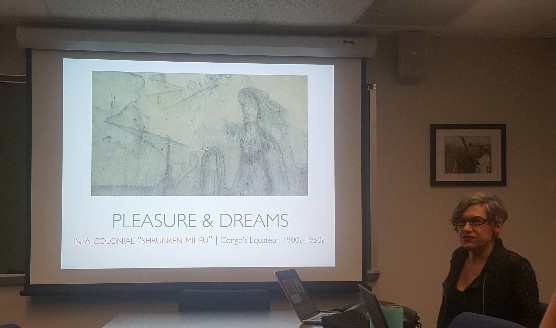
Hunt’s research on the Belgian Congo complicates the story that is usually told by historians. Focusing in the 1900’s-1950’s, Hunt opens with the timeline of how King Leopold II’s Congo Free State (1885-1908) transitioned to the Belgium’s Belgian Congo (1908-1960). Hunt understands the colonial Belgian state as divided into two: the Nervous State and the Biopolitical State. The latter concerns bureaucratic and functional processes of the state, including the enumeration of populations, species, bodies, and disease, while the former concerns a colonial state of paranoia that uses methods of control and terror to protect colonial interests. Intertwining religious imaginations with biomedicine, police operations, and fierce subaltern insurgencies fueled by reverie (daydreaming about postcolonial futures), Hunt connects her multidimensional colonial history to contemporary strategies in Congo’s eastern warzones, where rape has returned as a strategy used to terrorize and denigrate enemies while both biopolitical and securitizing campaigns remain active.Hunt’s work also prioritizes the agency of Congolese living in these colonial territories. Her research thus differs in scope and focus from other historians in that, while discussing the violent Belgian colonial state, she also points out that the area had long been the site of enormous violence and resistance movements, long before formal colonial institutions were organized. In particular, major trade routes snaked through and intersected one another within the Congo and were often the sites of conflict. Further, though the colonial territory was known for perpetuating a heightened violent atmosphere, the standard of living in the Congo was also the highest of any post-World War II colony in Africa. Essentially, the colonial state bought the cooperation of workers, to quiet sites of resistance. Themes of escape and flight, violence, suicide, and reverie, and reproductive and expulsive therapies are consistently counter-poised throughout Hunt’s work, and contribute to a rich, multifaceted, and complicated historical presentation of 1900-1950’s Congo.
